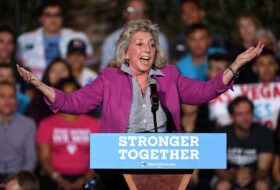
The Nevada bill seeking to force operators to disclose lists of players they’ve banned does not have enough support to pass this year. AB 380 was the brainchild of pro poker player Sara Ralston and had Speaker Steve Yeager as its champion in the state Assembly. Even so, the bill failed to make it out of the Assembly’s Judiciary Committee.
According to the Howard Stutz of the Nevada Independent, the Committee’s Chairwoman, Brittney Miller, said the bill did not have sufficient votes to advance.
The bill’s original language would have forced online gambling operators to provide the Nevada Gaming Commission (NGC) lists of players they’d banned for cheating. However, an amendment removed references to cheating, requiring instead that operators disclose all banned players regardless of the reason.
A Controversial Idea
Poker players have often wished for sites to share information on banned cheaters to prevent them from trying the same thing elsewhere. Operators have not been interested in implementing the idea of their own accord. That’s probably due mainly to the potential customer privacy issues it would raise.
That’s the same reason Caesars opposed the legislation, fearing the litigation that might ensue. Caesars owns WSOP, currently the only online poker site in Nevada.
One might wonder about the purpose of sharing such lists when there’s only a single operator. However, AB 380 sought to use the provisions of the Multi-State Internet Gaming Agreement (MSIGA) to obtain lists from operators in other states that are party to the compact. MSIGA is the agreement allowing WSOP to share traffic between its sites in New Jersey, Delaware and Nevada, while Michigan is a more recent signatory.
That aspect of the bill would have been controversial in its own right. In principle, MSIGA does oblige member states’ regulators to share data for enforcement purposes. Whether the NGC would be willing and able to invoke that clause to force New Jersey and Michigan operators to share their ban lists is another question. The regulator has not made its feelings about the legislation known.
Back Again Next Year?
Ralston insists the legislation is essential to the integrity of poker and that she’ll resume the effort next legislative session. However, it’s hard to see things going any differently unless something changes to clarify the legal murk surrounding what it proposes.
As it stands, AB 380 would have put both the NGC and poker operators in a bind. First, attempting to force compliance from out-of-state operators would test the limits of MSIGA in a way that its authors may not have anticipated. At the same time, it would oblige operators to choose between fighting the regulator on behalf of banned players’ privacy or facing probable lawsuits from those players.
The nature of Nevada politics is that any gaming bill that doesn’t have industry support will face long odds of success. That goes double when it stands to be a headache for the state’s regulatory bodies as well. Still, conversations about balancing transparency and game integrity against player privacy are important. Next year’s effort may advance that discussion even if it encounters the same hurdles it did this year.





